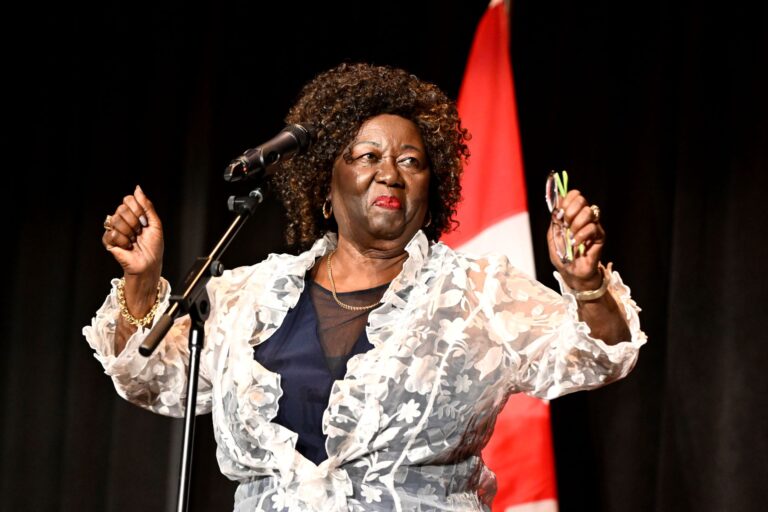Many years ago a friend of mine ”” a man of scrupu- lously centrist political con- victions ”” told me that although he found both the left wing and the right wing to be equally confused, he tend- ed to have more sympathy for the Left. ”œWhen they screw things up,” he said, ”œat least you can say that their heart was in the right place.”
This is perhaps not an earth-shattering observation, but it is one that has stayed with me over the years. It is also an observation that the current archi- tects of the initiative to unite the Right in Canada should pay attention to.
Many people who subscribe to either left wing or right wing political ideas no doubt do so for principled reasons. They have thought through the issues, they have a general view of how the economy and the political system function, and they adhere to some relatively clearly articulated moral principles. Putting it all together, they then decide to plump for either the Right or the Left.
But for every person whose political alignment reflects a principled choice, there will be many others who seem to be just temperamentally disposed to sup- port either the Right or the Left. Their political affiliations are grounded more in visceral reactions than in reasoned choic- es. We all know how to identify these people, even though it’s sometimes diffi- cult to articulate precisely how we do so.
Those whose politics come from the gut rather than the head represent something of a mixed blessing for political parties. On the one hand, they are highly partisan and quite loyal. They are very unlikely to be swayed by the arguments of political opponents, simply because their polit- ical loyalties are not ultimately grounded in arguments. This steadfast- ness, however, can easily become a liability when the party itself needs to update or modernize its platform. The same imperviousness to argument that makes them so loyal can also make them stubbornly resistant to change.
One could see these dynamics played out quite clearly in the NDP party over the past decade. While the NDP has always attracted individuals who are left- ists for principled reasons, it also attracts many who are simply bleeding hearts. The bleeding hearts are easy enough to identify ”” they are the ones who have never met a claim to victimhood that does not cry out for redress and compen- sation. They are temperamentally inca- pable of saying no to the underdog. This makes them very reliable when it comes to showing up at demonstrations, but very bad when it comes to budgeting.
I like to think of the federal NDP as essentially an unstable coalition of socialists and social workers, with each group constantly vying for control. The social work wing ran the party through- out the ”˜90s (and bears considerable responsibility for its electoral misfor- tunes). The selection of Jack Layton as leader marks the return of the socialists.
Things look a little bit different on the Right. Whereas the left-wing tends to attract bleeding hearts, the right-wing tends to attract jerks. Of course there are all sorts of fancy intellectual reasons why one might want to shrink govern- ment, reduce taxes, and curtail entitle- ment programs. But a lot of people support these policies simply because they don’t care about anybody but themselves. They are, in other words, self-interested jerks. Many even have a mean streak, which makes them react to claim of victimization in a punitive rather than a compassionate manner.
In the same way that the Left must keep the bleeding hearts under control in order to field an electorally credible party, the Right must make efforts to keep the jerks under control.
In this respect, our proximity to the United States has proven extremely unhelpful for the Right here in Canada, simply because the tolerance for jerks is so much higher south of the border. Public discourse in Canada is governed by norms of civility and fair play that are much more stringent than what one encounters in the United States. This means that cynical tax cut pledges, scaremongering about crime, attack ads, and other negative campaign tac- tics are significantly less effective in this country. If there is one thing that should be learned from the electoral humiliations suffered by the right wing in Canada over the past decade and a half, it is that Tories are not Republicans.
Rather than fretting over the social conservatism of the Canadian Alliance base, those who worry about the electoral viability of the new Conservative party would be better off putting some distance between them- selves and the Ralph Klein–Mike Harris axis. When Klein went down to a home- less shelter to pick a fight, it said some- thing important about his character. When Harris cut welfare supplements to pregnant women, claiming that for all he knew they were spending it on beer, it also spoke to his character. Both inci- dents suggest that, in the grand spec- trum of right-wing sentiment, Harris and Klein are quite a ways out toward the jerk end. And in this country, jerks discredit the Right just as surely as bleeding hearts discredit the Left.










